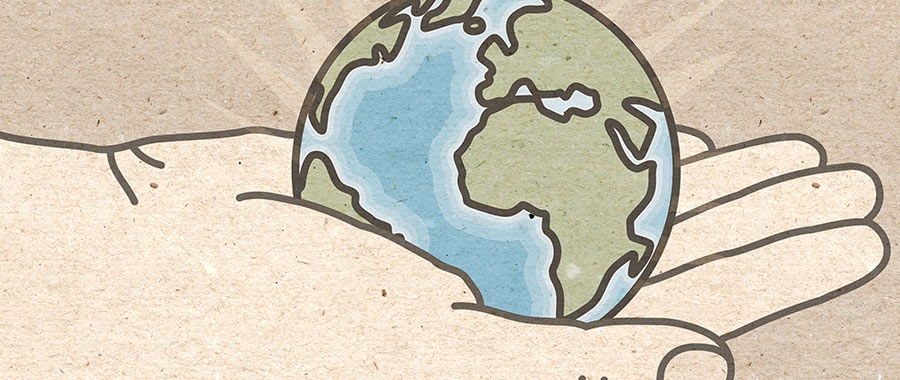The views expressed in our content reflect individual perspectives and do not represent the authoritative views of the Baha'i Faith.
Complaining to my husband John about my ongoing battle with weeds in the garden—they seem to be winning—I thought about how dandelions grow.
If the roots aren’t removed along with the leaves, stems, and flowers then the roots just get stronger.
This parallels a common approach to the world’s problems. Addressing aboveground symptoms rather than underlying causes brings results both temporary and superficial. In the meantime, the problem itself grows and even escalates.
Severe situations such as famine, epidemics, extreme weather, refuge crises, and financial failures appropriately call for immediate measures. But even while doing so, we must acknowledge that the underlying issues are not being resolved. Instead we need to balance immediate attention to urgent situations with serious efforts and resources aimed at fundamental root causes:
A tree that hath a root shall bear fruit, while the tree that hath none, no matter how high and hardy it may be, will eventually wither, perish and become but a log fit for the fire. – Abdu’l-Baha, Selections from the Writings of Abdu’l-Baha, p. 223.
We must keep working toward permanent solutions—solutions deeply-rooted and powerful enough to affect change.
Two of our great challenges today are climate change and war. Neither is a new issue, and both threaten to create unalterable damage to our already beleaguered planet and its creatures, including us.
Looking first at climate change, we may be too late to avoid it, but we are not too late to slow it down and to minimize its impact. We do not have to accept environmental degradation as inevitable and unstoppable. Fortunately, despite many years of delays, we now have almost universal agreement among world leaders and scientists about the role of human activity in creating the problem. Unfortunately, even tragically, we do not have the same level of agreement about what to do and the channels through which to do the work.
This means we need to be active at the level of civic engagement, and we must empower individuals to each do our part.
Considering war, some say the underlying cause is scarcity of resources and others say it is power-hungry leaders—among the many possible explanations. But surely few people truly want war, even among those who wage it. War is a desperate act, devoid of respect for others. I feel so sad when I think about the countless number of people who have never known peace.
Underpinning the world’s problems is a general failure to recognize the essential unity of all people, our interdependence, and our potential. If we had a universal, collective will to clean up our mess then we could cope with climate change—and if we abandoned old prejudices and instead embraced forgiveness then we could have peace.
These words from the Baha’i teachings relate not only to these two problems but to any other we might consider:
Bigotry and dogmatic adherence to ancient beliefs have become the central and fundamental source of animosity among men, the obstacle to human progress, the cause of warfare and strife, the destroyer of peace, composure and welfare in the world. … we must therefore hold fast to the tools of perception and knowledge. – Abdu’l-Baha, Selections from the Writings of Abdu’l-Baha, p. 136.
So what can I, as an individual, do everyday? What can I do to “hold fast to the tools of perception and knowledge?” Beyond pulling out dandelions, what else can I remove by the root? I can be overwhelmed by the scope of problems, or I can find my own way to contribute to the greater good. Fortunately, the Baha’i teachings are rich in guidance about this very thing.
They tell me that I can improve my own character and connect to my spiritual nature through prayer, reflection, and study. I can demonstrate my own freedom from prejudices, welcoming all people within my community and social spaces. I can align my beliefs with my actions through service to others. I can use my intellect to distinguish fact from dogma or superstition. I can educate myself and share what I learn about issues that have lasting importance.
At the next level of action, I can support projects and causes that improve the welfare of the planet and its peoples. I can participate at a community level to promote principles-based governance. I can encourage others who are receptive to having a role in working toward a better future.
I recognize that weeding the garden and fixing the world are two extremes along the continuum of challenges, and yet they both begin at the same place and have the same answer. Get at the root cause and fix it—starting now.
This series of essays comes from Jaellayna Palmer’s newly-published book, Personal Path, Practical Feet.
















Comments
Sign in or create an account
Continue with Googleor